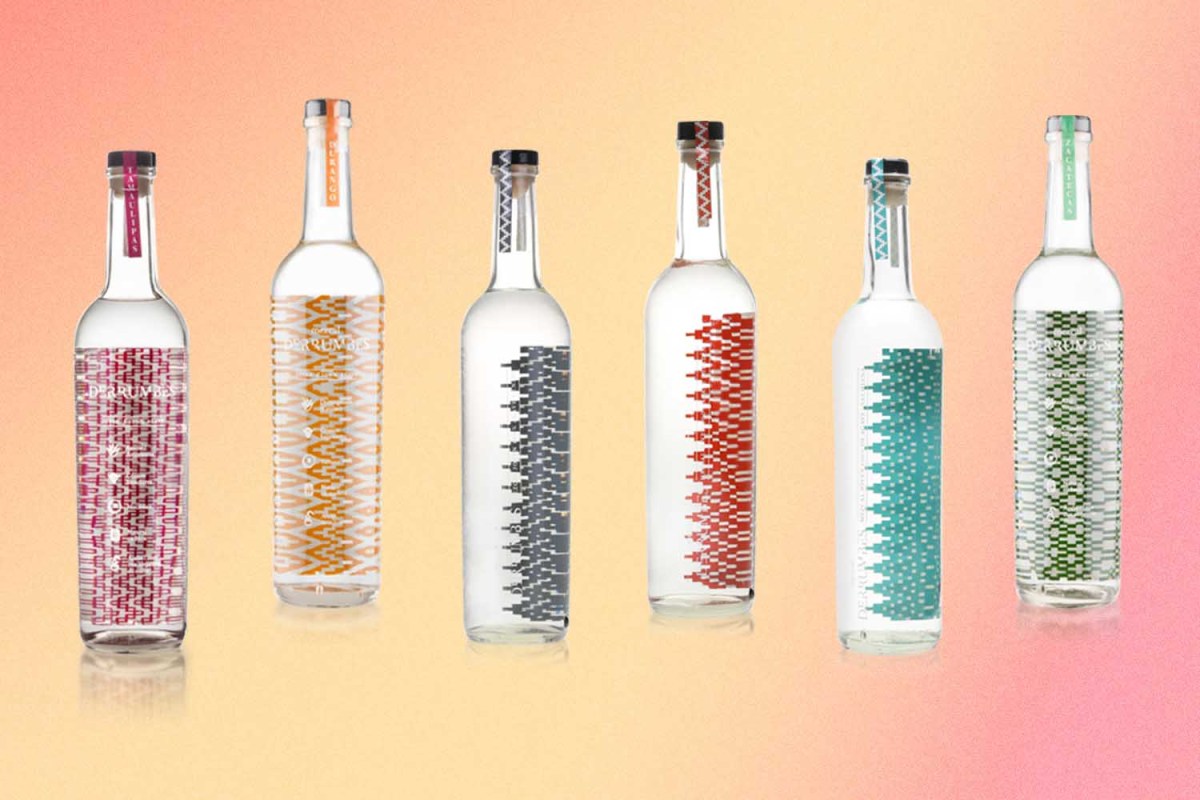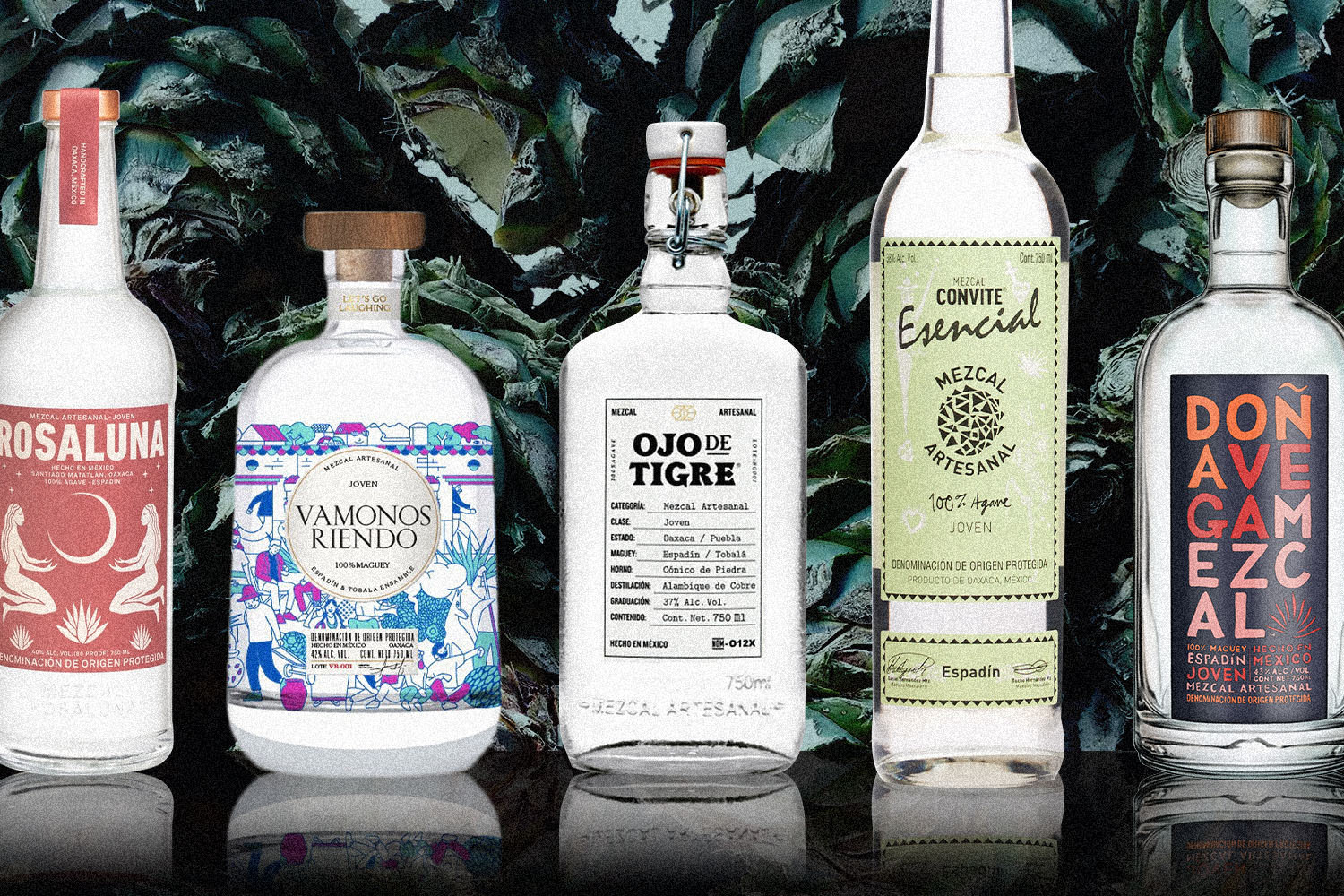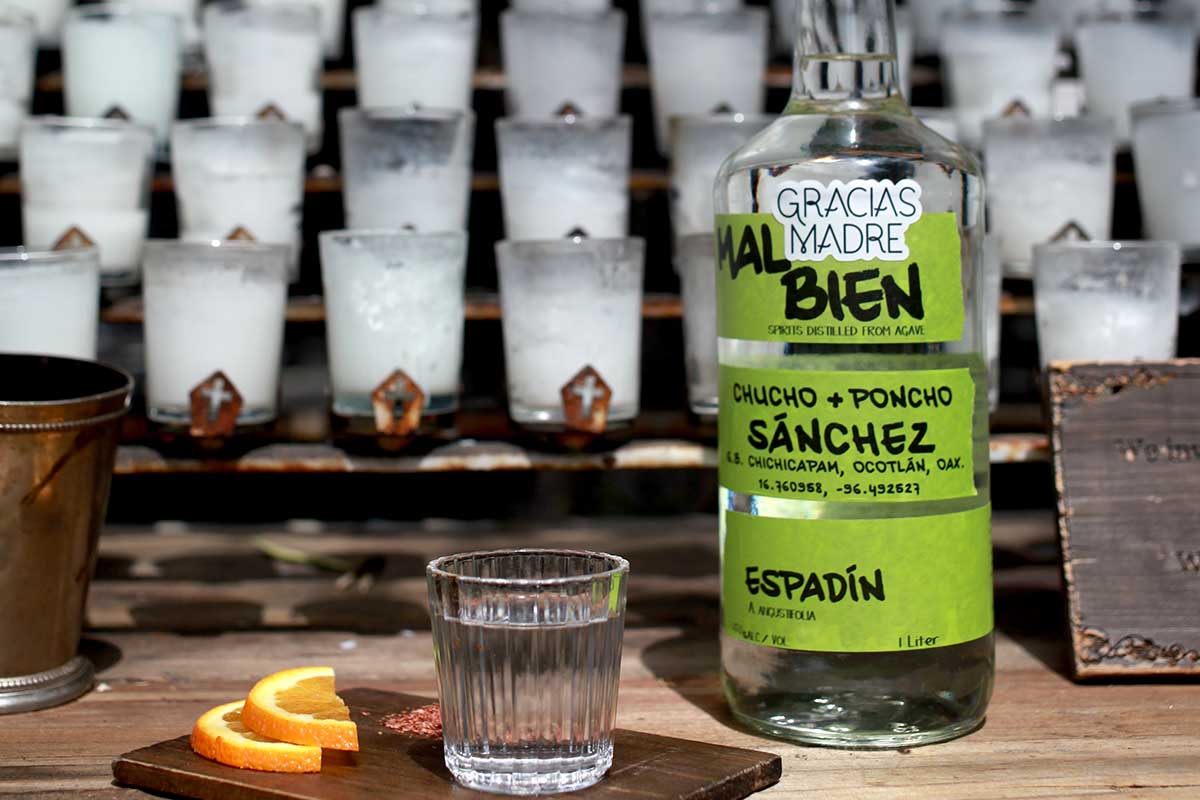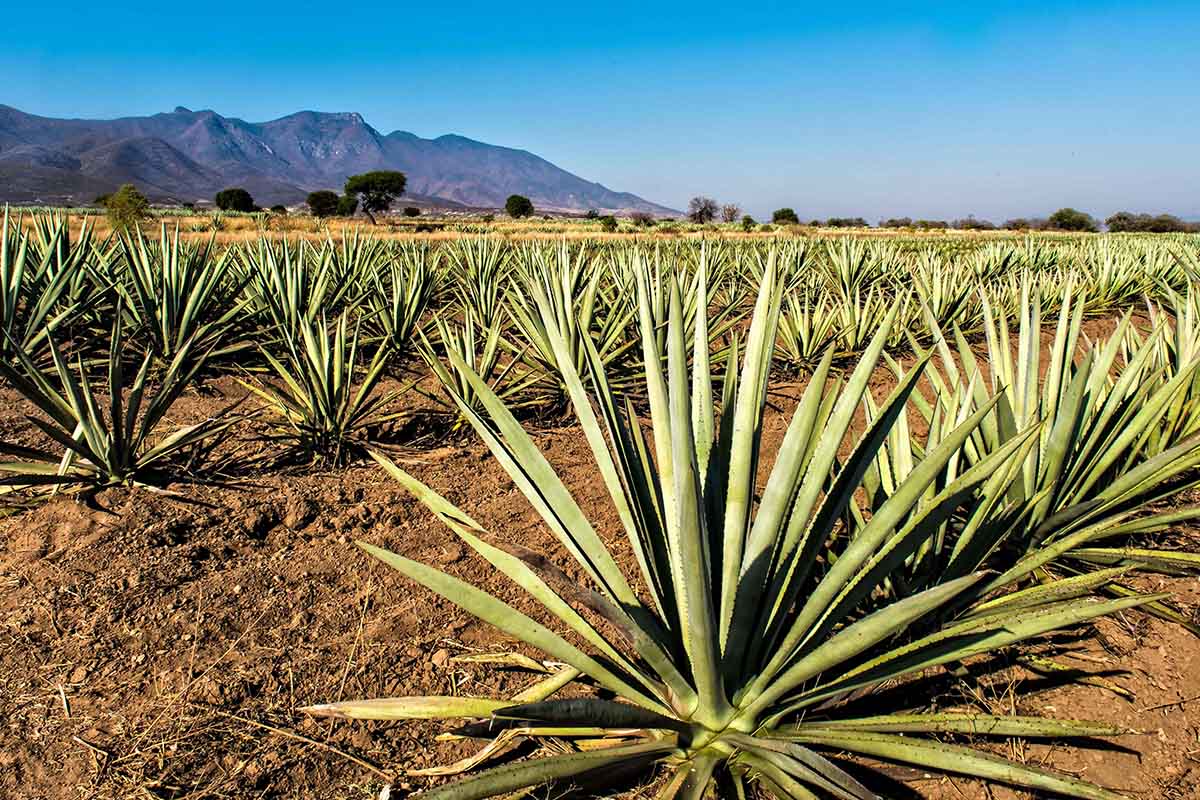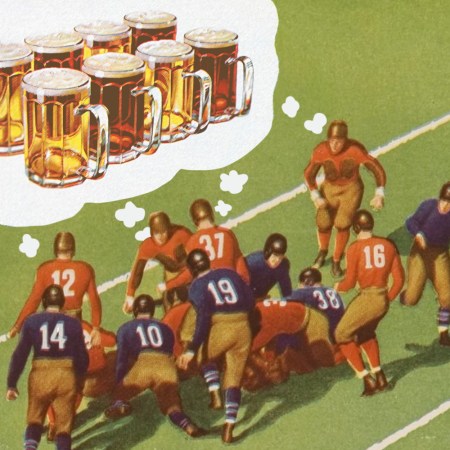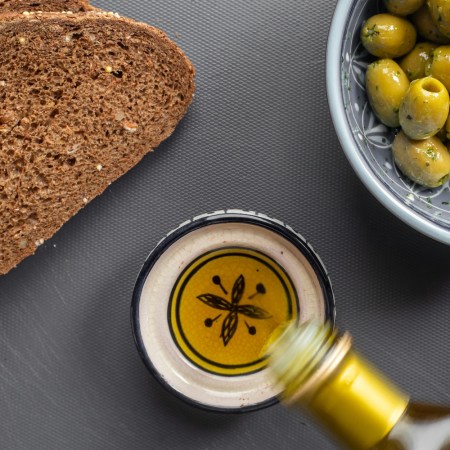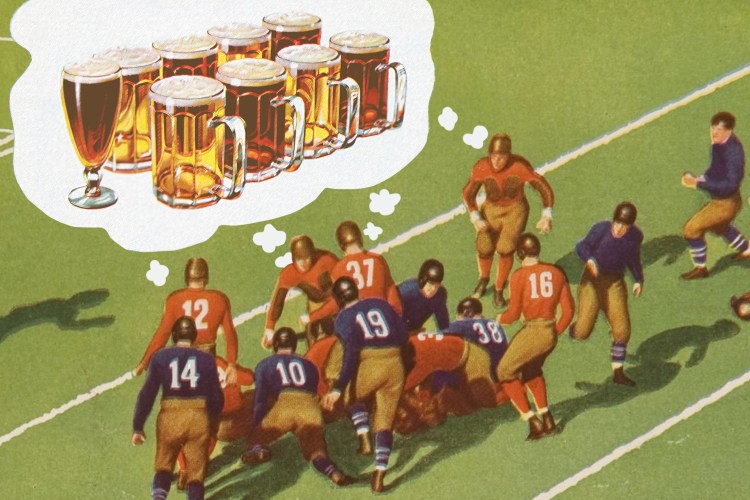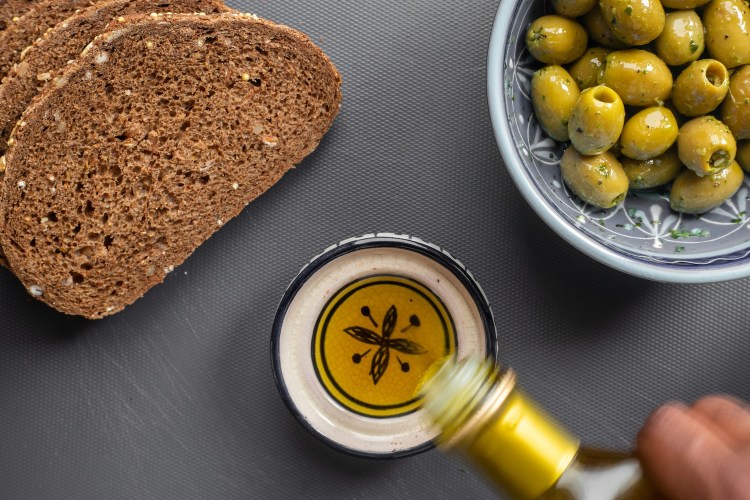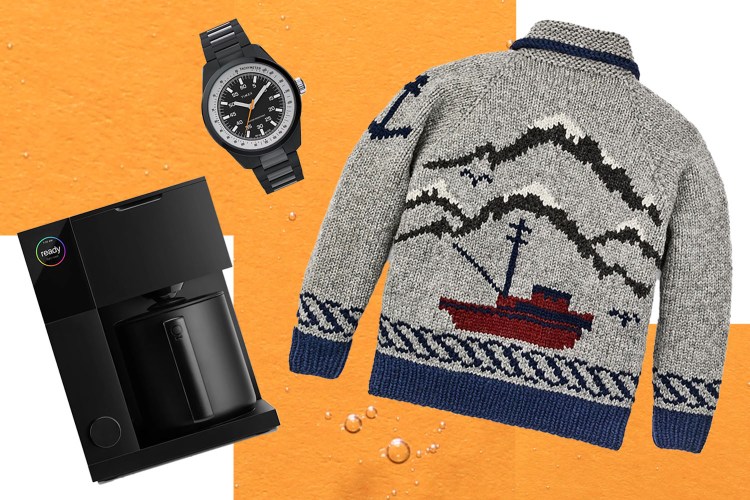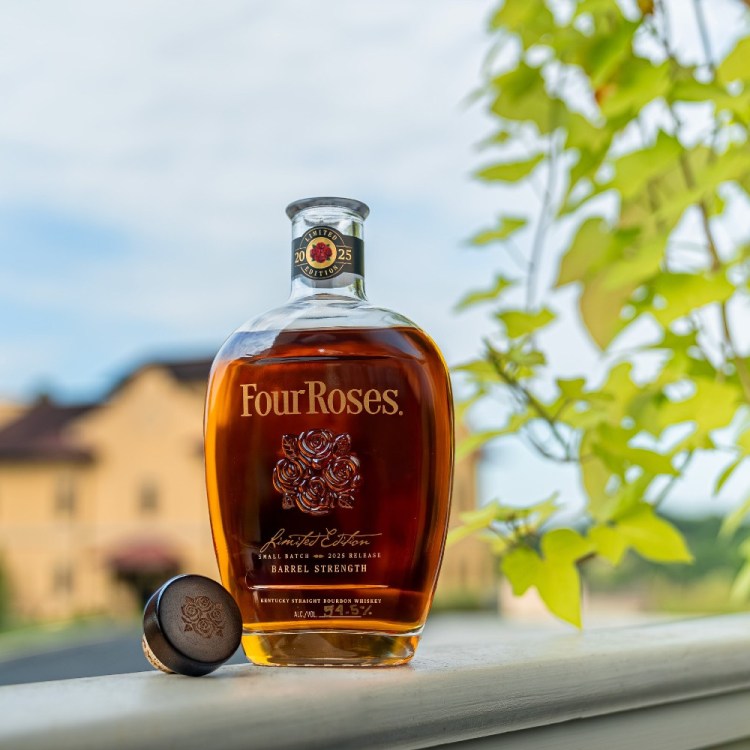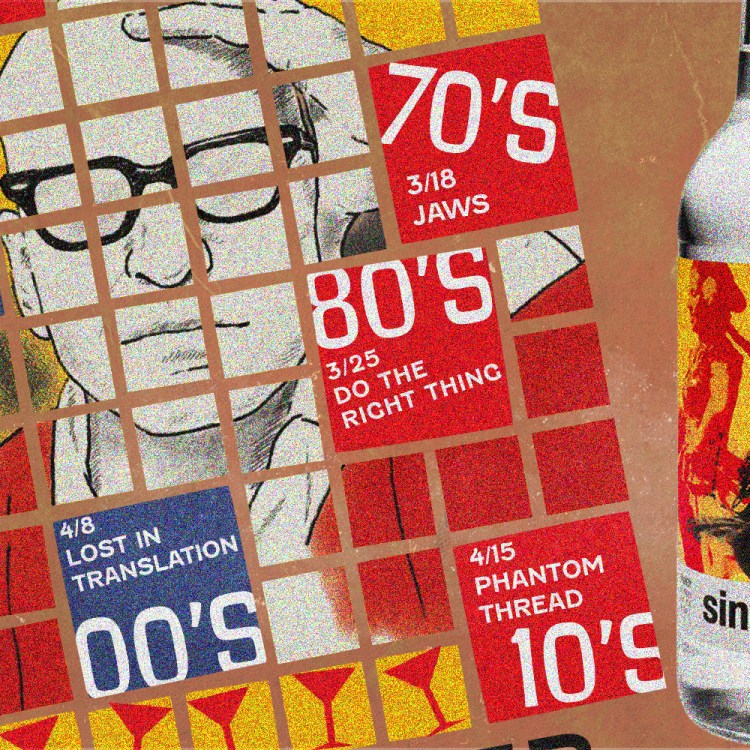During my recent bottle-shopping excursions across New York City, I started recognizing a bottle with multicolored, geometric patterns. After the third or fourth time seeing the booze — and always a sucker for cool-looking bottles — I asked what it was.
Turns out it was Derrumbes Mezcal, a small, independently owned mezcal brand from Jalisco. I was told how these are actually small-batch mezcals made by independent mezcaleros and bottled by Derrumbes.
Intrigued, I Googled them but couldn’t find anything other than a few vendor pages: no articles, no website and a paltry Instagram presence. How could a brand with such a strong presence in liquor and wine stores be so difficult to learn about in 2022? Mysterious, but it only made me more interested. I emailed a few people and eventually found myself connected with Esteban Morales, one of the founders of Derrumbes.
Morales, a former chef, started selling mezcal in his hometown of Guadalajara in 2008 as a distributor. “I fell in love with the concept and flavor profiles,” he tells InsideHook. “So I started reaching out to many different producers and brands in Mexico trying to build my own portfolio.” He was successful via this arrangement, but before long some of his larger brands jumped to bigger distributors without any notice.
That was when he found La Venonosa Raicilla, an agave spirit similar to mezcal and native to Jalisco. “It was important for me to build opportunities for the producers of Jalisco,” Morales says.
A few years later, in 2012, his eventual Derrumbes co-founders called him up with a bit of seed money saying they wanted to start a mezcal brand. One of them, Sergio Mendoza, had already started Don Fulano Tequila and had a solid distribution network; the other was a cousin of his wife with money to invest.
Morales is quick to clarify that the money did not come from some deep-pocketed investor. “We started with $15,000. It was not a lot of money. We still don’t have any other investors. It has been a very organic, very natural growth.” He’s also quick to point out this is a labor of love, not just a means to an end. “We haven’t had any profits in the past 10 years; we reinvest everything. So the company has much more love and passion than anything else.”
If you’re a casual mezcal drinker, you probably think of the spirit as tequila’s earthier, smokier cousin. If you know a bit more, you are most likely to associate mezcal with the Mexican state of Oaxaca. And you wouldn’t necessarily be wrong: according to Morales, around six million liters of mezcal were legally produced in 2019, and 92% of it was from Oaxaca. Mezcal is a comestible that is determined by a DO (Denomination of Origin, like how Champagne can only be from a specific part of France otherwise it is sparkling wine) that comprises nine total Mexican states. That means the remaining 8% of mezcal production outside of Oaxaca is split up among the eight other states. “So about 1% per state outside of Oaxaca is only 60,000 liters per year per state,” as Morales points out. “If you try to divide that by the number of mezcaleros and families producing it in those states, it is basically nothing per producer. No one can survive on that.”
In that same year (2019), tequila accounted for 300 million liters of production. The market for agave spirits is clearly there, and mezcal’s popularity has only been growing in recent years. Morales and crew hope to help the mezcal market grow in a responsible manner.
[We want] to relieve the stress on agave in Oaxaca by allowing other regions to produce more in its stead
Esteban Morales, Derrumbes Mezcal co-founder
The goal of Derrumbes, if it is to be drilled down to a singular mission, is to create a market for mezcals from regions other than Oaxaca in order to support more mezcaleros and family-run operations in the lesser-known states. And as Morales adds, “to relieve the stress on agave in Oaxaca by allowing other regions to produce more in its stead.”
He clarifies that he loves mezcal from Oaxaca, but that it’s impossible to keep growing the popularity and market for mezcal from Oaxaca without growing it from the other regions. That, simply, is not sustainable. In fact, there is nothing sustainable about alcohol, as he points out.
“The concept of sustainability in spirits is fake. Spirits are a luxury item. Nobody needs alcohol to survive. Every liter of water that is used to produce alcohol is not inherently sustainable. So we prefer not to discuss our brand as being sustainable. We prefer to discuss it as being socially responsible.”
In essence, the more mezcal they are able to sell, the more likely consumers are to discover a mezcal they like from outside the dominant state of Oaxaca, and the more likely they are able to create a market for mezcaleros and their families that otherwise would struggle to find buyers for their product — all the while alleviating the intense pressure felt on the Oaxacan ecosystem due to the overharvesting of agave in the state, which is something most major mezcal producers are seemingly not worried about.
Derrumbes currently features seven different expressions, each from a different state. Because their production is relatively small, they work with a single producer for each expression. As he puts it, when thinking about the mezcal they will release, they look for something that is representative of the culture in each particular state. The company is less concerned with agave varietals and more concerned with what the mezcaleros they are going to work with feel most strongly about. Some expressions are a mix of agaves, some are purely one agave species.
“Derrumbes is exciting because their lineup is like a tasting flight that features excellent benchmark stylistic examples of mezcal from a range of producing states,” says Greg Boehm, owner of The Cabinet in NYC. “A great example of Oaxaca beside a great example from Michoacán beside a great example of San Luis Potosí beside a great example of Puebla … you get the idea. It’s one of the best and most approachable ways out there to get a bigger picture overview of mezcal as category, how it lives and breathes all across Mexico.”
In sampling the Derrumbes mezcals, I was struck by the incredible variety in flavor between the different expressions. Not surprising, when you consider each expression comes from a different place and a different plant, and then blended by a different family who have been making mezcal a particular way for decades. My personal favorite was the Durango, which was far less smoky than we’ve come to expect from a mezcal and featured very clear fruit flavors (I got something close to dark chocolate-covered cherries). The Michoacán was another standout expression, which was earthy and featured vegetal notes.
Morales is convinced that mezcal, aside from being rich and flavorful and complex, is reminding people of the “beauties of intoxication” as he puts it. “Mezcal spends 8-10 years absorbing the energy of the sun. So somehow we are drinking pure sunshine.” He grins as if he has said this line hundreds of times before.
If you want to try Derrumbes, we suggest Old Town Tequila or Drizly … or one of your better local liquor stores. Conveniently, the brand also makes 200ml bottles along with the usual 750ml ones)
Every Thursday, our resident experts see to it that you’re up to date on the latest from the world of drinks. Trend reports, bottle reviews, cocktail recipes and more. Sign up for THE SPILL now.
